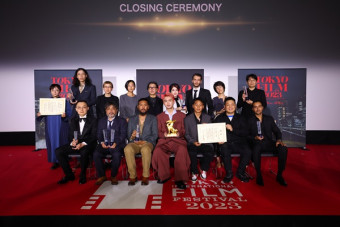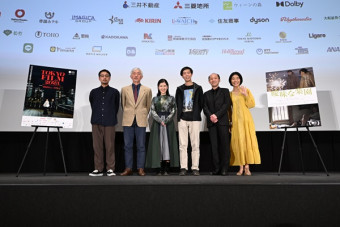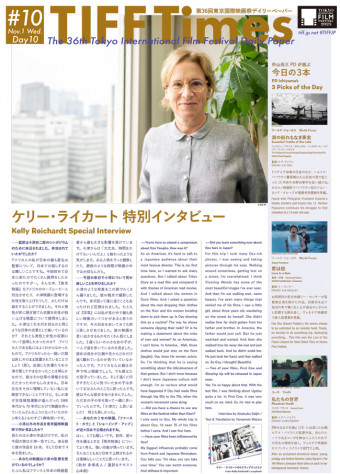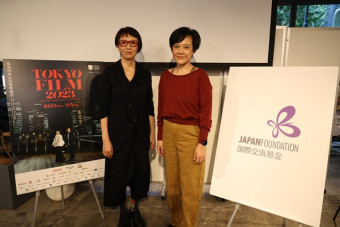
There have been many films made about the Holocaust, but Barbara Albert’s Blind at Heart, screening in the Competition section at the 36th Tokyo International Film Festival, may be the first to look at the situation of Jews in Germany before and during World War II from a particularly female perspective.
Based on a best-selling, award-winning German novel, Die Mittagsfrau (The Mid-Day Woman), Albert’s movie uses a kind of epic structure to chart the course of one Jewish woman from the end of World War I to the aftermath of World War II, which she miraculously survives through a combination of luck and native intelligence that nevertheless saps her emotional wherewithal.
During the post-screening Q&A on October 24, co-writer Meike Hauck explained, “When I read the novel, realized it had to be made into a movie. The story transcends the time in which it’s set and becomes universal. I knew Barbara from university and we decided to make it, with the help of the author of the novel.”
The English title is uttered several times throughout the film to indicate the protagonist’s seeming lack of feminine wiles, which turns out to be a survival tactic more than anything else. As the producer, Oliver Schündler, put it, “When we started principal photography, the Ukraine War had just started, and now there is a war in the Middle East. I think this movie is timely because it shows how war stops women from leading the lives they deserve.”
In the film, Helene (Mala Emde) grows up in a fatherless family with a mentally unstable mother and a keen desire to study medicine. When her aunt invites her and her more libertine sister to live with her in Berlin in the 1920s, she jumps at the chance, since she is unlikely to receive the kind of education necessary to become a physician in her backwater town.
Though the script doesn’t emphasize Helene’s Jewish heritage or, for that matter, chart the rise of National Socialism, it does show what a woman like Helene is up against in her pursuit of a medical degree. She falls in love with a Jewish student intellectual, with whom she lives a bohemian life before politics make it impossible. Reduced to working as a nurse, she is courted by a patient, a soldier name Wilhelm (Max von der Groeben) who, understanding she’s Jewish, offers to procure fake papers saying she’s Aryan. Though she doesn’t love him, she accepts his proposal of marriage, knowing that it’s the only way she can realize her dreams.
Answering a question about “Helene’s identity crisis,” Albert said, “The movie is really about the female body, and the actor who portrayed Helene was quite courageous in exploring this aspect, especially with regard to the sex scenes, which were important to show her relationships over the years.” Von der Groeben added that he and Emde were aided enormously by a “choreographer” who helped them get through these scenes, which were not only realistic, but representative of the sexual politics of the day. “The cinematographer was essentially dancing with the bodies,” added Albert.
Helene’s emotional blindness comes into its own in her relationship with her son, which forms the framing device for the plot and challenges the conventional wisdom associated with creating protagonists who happen to be mothers. Helene sees her fate somewhere else, and it doesn’t have room for the so-called “maternal instinct.”
“Actually, the ending of the movie is different from the one in the book,” Albert explained. “I think it was important to have a little hope in the end, and you can sense a connection between the mother and the son. Cinema is really about humanity, and though there is pain in their eyes, there is also some hope. I think that’s particularly important right now in a world so full of despair.”
Q&A Session: Competition
Blind at Heart
Guest speakers: Barbara Albert (Director/Screenplay), Max von der Groeben (Actor), Meike Hauck(Screenplay), Oliver Schündler(Producer), Kyan Bayani (Composer)


















































